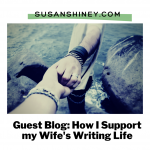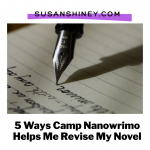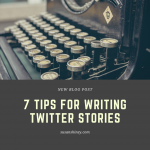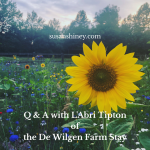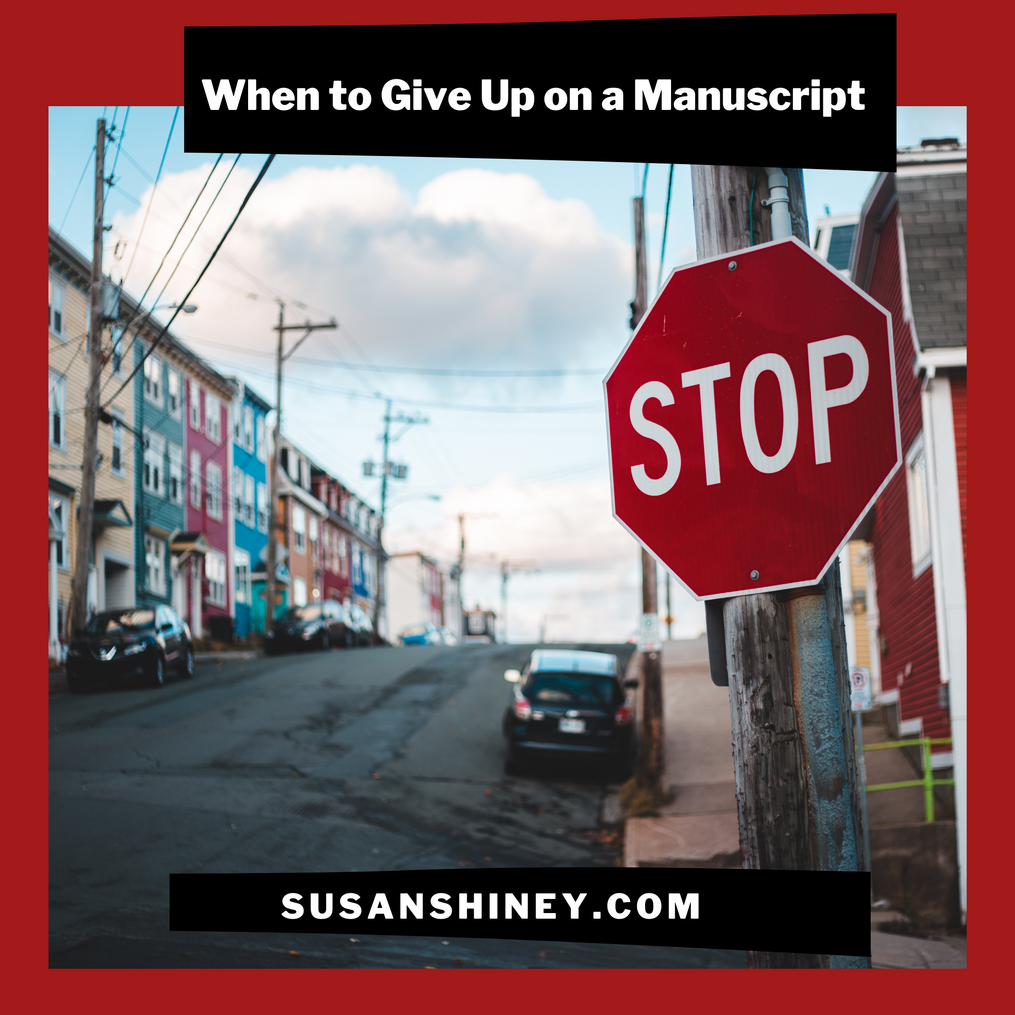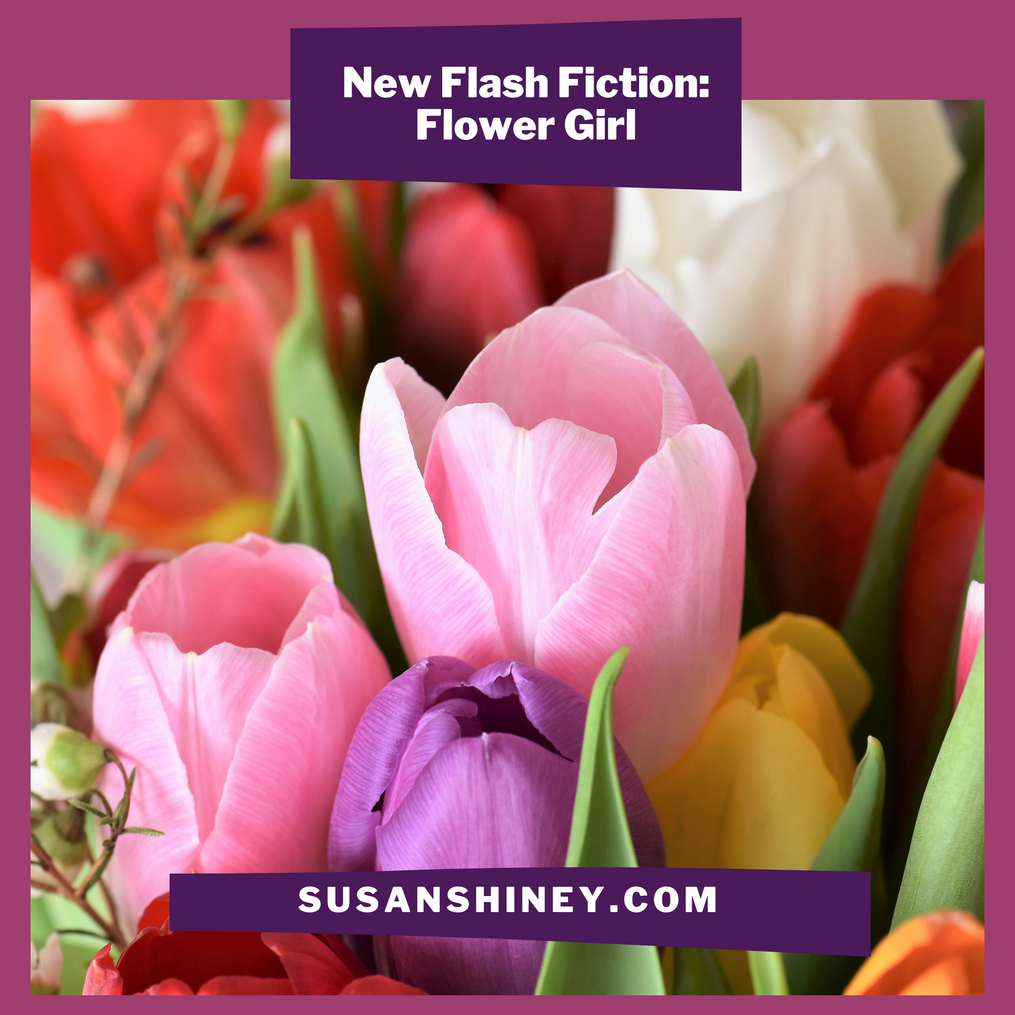Blogs by Author All the article wrote by Susan
10 Positivity Practices that Enhance my Creativity
Positivity practices are an integral part to my creative routine. They also help me to be in tune with what my goals are and how to focus my energy on the things I care about most. Not to mention, they make me a happier and healthier person which of course leads to doing more of the things I love.
Reading Hardwiring Happiness by Rick Hanson totally rocked my world in terms of the way I viewed positivity and our brains. He discusses the way humans brains have evolved and that we are hardwired to focus on negativity, because that is what helped us survive a very dangerous world. He describes it as “Your brain is like Velcro for negative experiences but Teflon for positive ones.” His book describes the ways to train your brain not to be so worried about the predator in the bushes and remembering which berries are poisonous, that kind of vigilance doesn't serve us in the modern world. It just keeps us sad and paralyzed by anxiety.
15 Posting Ideas for Writers on Instagram
I have been learning a lot about Instagram and building my author platform for the last six months. If you want to see the checklist I use for growing my followers on Instagram you can download it here: FREE Instagram Growth Checklist.
Instagram is a great place for writers to prosper. I know some writers feel a bit overwhelmed with how to have a visual representation of the work they do. I hope this blog is helpful for them as a springboard, however there are several ideas you can add that fit to your own vibe. Social media marketing has enriched my writing life immeasurably. I wrote a blog about that here, How your Social Media Platform Will Make You a Better Writer.
Short Story: The Royal Palate
This is a fun little story I worked on for the NYC Midnight Short Story contest several years ago. I ended up completely changing the story after this draft and submitting that version, but there was a cookyness I have always appreciated in this one. My prompt was : Genre: Suspense, Subject: Going into hiding, Character: A line cook. Enjoy!
The roof of the Grand Palace of Bhutolia came to a point so sharp it seemed like it could stab the sky. Traditional stories state that the Gods themselves poured gold over its surface. The palace was so vast, servants would often lose their way. A leopard, new to the royal complex, roamed the complex freely. When he was five feet away from the cockatoo his collar released a surge of electricity. He moved closer and this time the shock caused him to lose consciousness at the foot of the grand entrance. There were 1,000 rooms in the palace, and only five of them were filled with youtuber prisoners.
Prince Ram Dorji always wore his traditional dress from Bhutolia, bright colors that flattered his clear pale skin. He came out of his morning locust pose with his toned abs constricting as he brought his legs down from over his head and he looked up at the ceiling with a smile.
How I Support my Wife’s Writing Life
As a writer's partner I sometime feel that there is not much I can do to improve Susan's writing. I am an IT man. I like downhill mountain biking as well as other mountain biking activities. I like cars and motorcycles… So in some ways I am the stereotype of the male figure. In some ways only, because as the "man" of the house I am suppose to provide for my family and yet Susan provides for both of us right now. How? Well, she has the energy to go to work 5 days a week to teach English, pretty much 41 weeks of the year.
For me, it's all about energy and how much energy I can put or want to put at doing something. So going to work the way Susan - and most people - do is way too much energy taking out of me for the reward (mostly the paycheck). I am not underskilled but I do think in France IT workers could be paid way more than they do but for political reasons (not economical reasons) it does not. So I could fight it, or accept it, or not work at all. For now I choose not to work at all.
7 Things I Learned from Losing a Writing Contest
Many people ask: Is it worth it to pay for a writing contest? The odds of you losing that contest are extremely high, so that is a factor. However, I think it is worth it if you get feedback from judges, so you are basically paying for a professional critique. In January 2020 I participated in the NYC Midnight's Short Story Challenge. The entry fee was $48 if you signed up early before Dec. 12th and $58 if you signed up afterward. They pin writers from all around the world against each other to write a 2,500 word story in 8 days. They assign a genre, character, and subject to each group of writers. Three judges for each group of about 40 writers choose the top 5 stories to progress to the next round. Every writer that participates gets feedback on what the judges liked and what they think the writer should work on. The participants received the results and the judges feedback at the end of March 2020 just in time for the next round of the contest to begin.
5 Ways Camp Nanowrimo Helps Me Revise My Novel
I have been participating in Nanowrimos and Camp Nanowrimos since 2012 so I always forget that some people haven't heard of it before. I usually hear people respond with interest about going on a writing retreat in the woods in a cabin somewhere and I do want to do that one day as well. However, Camp Nanowrimo is a virtual writing accountability event with writers from all over the world participating. The official Nanowrimo stands for National Novel Writing Month and this one takes place in November where writers set goals to write 50,000 words in a month. Camp Nanowrimo differs in that it is in April and July and has more open goals set by the participants.
Flash Fiction: Sailboat Swans
Caredwyn played with the threads of the worn beach quilt her mother made from her childhood t-shirts that she couldn't bear to donate or throw away. Her mother sat next to her staring out at the waves as if the sets were speaking to her in morse code telling her what to say to her recently divorced daughter. Crash. Smash. Whoosh. "Just listen," they advised.
Running her fingers over the Carebear's belly to her right, Caredwyn took a handful of sand and placed it on the quilt square sculpting the sand around the cartoon character. She looked at the horizon as tears trickled down her cheeks. The liquid spread as she smiled when she saw the line of sailboats racing to the harbor. "Remember what I used to say about sailboats?" she said and rubbed her face with her sleeve.
7 Tips for Writing Twitter Stories
I used to be like most people and thought the story form classifications were either short stories or novels. There is so much more! Novels usually have a minimum of 50,000 words. Short stories have anywhere from 1,000 to 7,500 words. Novellas fit the space between short stories and novels and apparently they are getting more popular in the e-book world.
I have a growing interest in the stories that are below the short story designation. Flash Fiction can be anywhere between 100 and 1,500 words. There are several online literary magazines dedicated to this type of fiction. The 100 or 101 word story movement even has a space for itself too. Below 100 words can be designated as micro-fiction. And an even more specific type of story that we are covering in today's post, a story in a tweet of 280 characters. Twitter doubled its character maximum in 2017 from 140 characters and this is a much better character count for stories and can usually encompass about 55 words.
Q & A with L'Abri Tipton of the De Wilgen Farm Stay
What is the De Wilgen Farm Stay?
De Wilgen Farm Stay is a small creative working residency in the countryside of the Flemish region of Belgium. De Wilgen is run by myself and my partner, Jonathan Vanhaelst. The residency is open during the summer months for one and two-week stays. This summer, now in our second season, we will be open for residencies from early July to mid-August. We provide space where writers and visual artists can come to spend time doing the work that feeds them. We offer a space to artists that allows them to focus on their work while we take care of day to day things such as meal planning and dishes.
10 Takeaways from The Gift by Lewis Hyde
I had heard of this book through the years in different circles when I lived in New York City. When my current Lille/Brussels writing group brought up reading it, I was interested in checking it out. I bought the twenty-fifth anniversary edition published in 2007 entitled The Gift: Creativity and the Artist in the Modern World. The original title was The Gift: Imagination and the Erotic Life of Property, I prefer the latter title and think it captures its essence much better. I love books about creativity and leading a creative life and this book did have a profound effect on me and my view of the world.
So, here are the ten takeaways I had after reading it:



